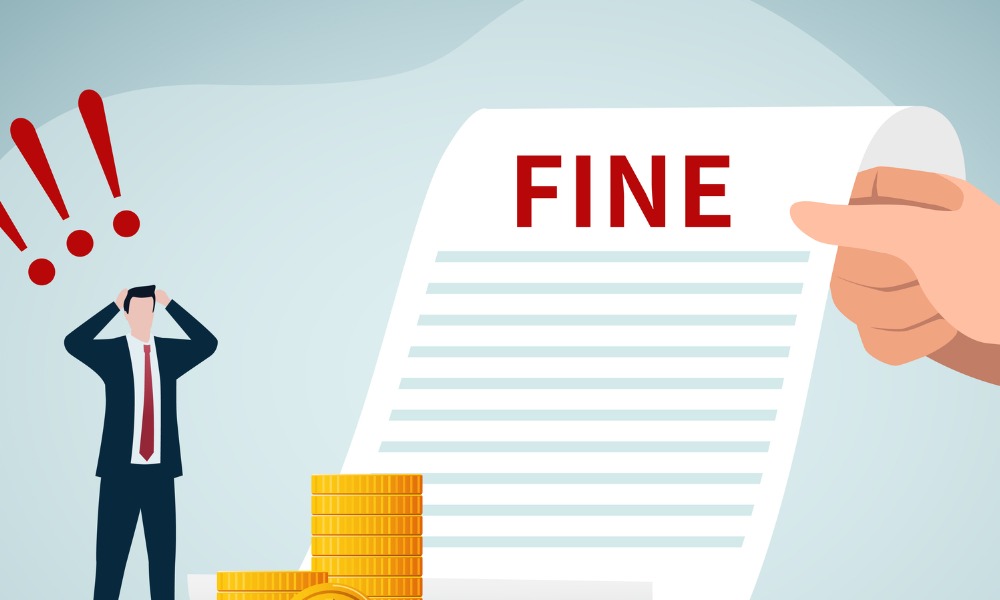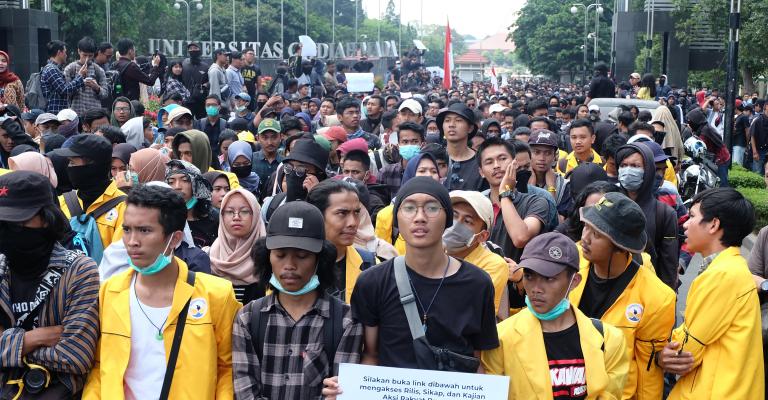The concept of income-based fines, also known as the "day fine" system, has been gaining attention as a progressive approach to handling traffic violations and minor offenses in various countries. This system determines the fines based on the offender's income, aiming to distribute the financial burden more equitably between the wealthy and those with lower incomes. By imposing fines relative to a person's earnings, the goal is to ensure fairness and accountability, encouraging all citizens, regardless of their economic status, to follow the law. This in-depth article explores the origins, implementation, advantages, challenges, and future potential of the income-based fine system across different regions, extending the discussion to over 5000 words for a comprehensive understanding.
The Origin of Income-Based Fines
Income-based fines first emerged in Finland in 1921, with the idea that fines should be proportional to the offender’s daily income. The Finnish government aimed to create a system where financial penalties for traffic violations would impact everyone equally, regardless of their financial standing. For instance, if a wealthy person were caught speeding, their fine would be significantly higher than that of a lower-income individual for the same offense. This approach ensures that the fines are meaningful and serve as an effective deterrent for people from all income brackets.
As Finland's system gained popularity, other European nations, including Sweden, Norway, and Germany, adopted similar models. These countries recognized that a standard fine, while potentially a minor inconvenience for wealthy individuals, could be devastating for those with lower incomes. Thus, the income-based system began to spread across Europe, offering a more just approach to law enforcement.
How the Day Fine System Works
The fundamental principle of the day fine system is to calculate fines based on an individual’s daily income. Authorities assess the offender's annual income, then divide it by the number of days in a year to determine their daily earnings. The fine is then calculated as a certain number of daily income units, which can vary based on the severity of the offense. For instance, a speeding violation might result in a 10-day fine, meaning the offender would pay an amount equivalent to their daily earnings multiplied by 10.
This system is not limited to traffic violations; it can also be applied to petty theft, fraud, and other minor crimes. The aim is to impose a penalty that reflects both the seriousness of the offense and the offender's ability to pay, ensuring that the punishment is fair and proportional to the individual’s financial capacity.
Benefits of the Income-Based Fine System
1. Promoting Social Justice and Equality: One of the key advantages of this system is its alignment with the principles of social justice. By fining individuals in proportion to their income, the burden of punishment is distributed more evenly across society. Wealthy individuals are held accountable in a manner that makes them feel the impact of their actions, while low-income offenders are not disproportionately affected by financial penalties. This approach fosters a more equitable legal system, promoting the idea that the law applies to all citizens equally.
2. Deterrence for Wealthy Offenders: The income-based fine system serves as a strong deterrent, especially for affluent individuals. In countries like Finland, where heavy fines are imposed on wealthy individuals for speeding, this system has led to a significant decrease in such violations among high-income groups. When people know that their fines will be calculated based on their income, they are more likely to follow the rules, knowing that they cannot escape a significant penalty simply because they can afford it.
3. Creating Equal Economic Impact: The goal of income-based fines is to create an equal economic impact on offenders. A standard fine might represent a minor inconvenience for a wealthy individual but could impose severe financial stress on someone with a lower income. By adjusting fines to reflect daily earnings, the system ensures that all individuals experience a similar level of financial discomfort for their infractions, making the punishment equally felt across economic classes.
Challenges in Implementing the Day Fine System
1. Administrative Complexity: One of the biggest challenges in implementing an income-based fine system is the administrative burden. Determining a person’s exact income and applying the correct fine requires access to accurate financial records and data transparency. This can be particularly challenging in countries where income documentation is not robust or easily accessible, and where tax evasion or undeclared income is common. Ensuring that fines are accurately calculated and fairly applied involves significant bureaucratic effort.
2. Potential for Wealthy Individuals to Relocate: In some Nordic countries, the introduction of income-based fines led to instances where wealthy individuals moved their residences to other countries with more lenient penalty systems. For example, some affluent individuals have moved to Switzerland, seeking to escape the strict fines imposed in Finland or Sweden. This trend suggests that while the system aims to hold all individuals accountable, it may inadvertently encourage tax and fine evasion by motivating the wealthy to relocate.
3. Not Suitable for All Offenses: While the day fine system works well for traffic violations and minor offenses, it may not be as effective for more serious crimes. For example, in the Netherlands, there has been resistance to using income-based fines for certain offenses, preferring instead to impose uniform penalties that are deemed fair regardless of income. The system’s effectiveness is thus largely context-dependent, requiring careful consideration of which offenses it is best suited for.
Income-Based Fines in Different Countries
Finland: Pioneering the System
Finland remains a leader in the implementation of the income-based fine system. The country’s approach to traffic violations is particularly notable. For example, in one highly publicized case, a wealthy business executive was fined over 100,000 euros for speeding, demonstrating the principle that no one is above the law. Such incidents have had a deterrent effect, making it clear that Finland's legal system treats all citizens equally, regardless of their financial status.
The Finnish system has been widely praised for its commitment to equality and fairness. However, it has also faced criticism for being overly harsh on the wealthy, with some arguing that it punishes success rather than promoting responsible behavior. Despite this, Finland’s model remains a key reference point for other nations considering similar policies.
Sweden and Norway: Following Finland’s Lead
Sweden and Norway have adopted income-based fines, but with their own variations. Both countries emphasize transparency and fairness, ensuring that the fine calculation process is clear and that individuals understand how their penalties are determined. These governments have also focused on maintaining public support for the system, emphasizing its role in promoting safety and equality.
In Sweden, for example, the day fine system has been used not only for traffic violations but also for petty theft and minor fraud cases. Norway has seen a reduction in traffic violations since implementing this system, with authorities attributing the decrease to the deterrent effect of higher fines for wealthier offenders. However, discussions around the fairness of such penalties remain, particularly when high-income individuals face fines that are significantly higher than the average person’s annual earnings.
Germany: A Modified Approach
Germany has adopted the concept of income-based fines but with modifications to suit its legal framework. Here, the fines for traffic violations are generally lower than in Nordic countries, but the system allows for adjustments in cases of repeat offenders or more severe violations. This approach aims to balance fairness with practicality, making it easier to administer while still achieving the desired deterrent effect.
German authorities view the system as a preventive measure rather than a punitive one, aiming to reduce repeat offenses by making fines proportional to the offender’s financial capabilities. While some critics argue that the fines are still not severe enough to deter affluent offenders, supporters believe that it strikes a reasonable balance between fairness and enforcement.
Potential for Income-Based Fines in India
The idea of implementing income-based fines in a diverse and populous country like India has been a topic of debate. India has a vast economic disparity between its wealthy and poor citizens, and a system that imposes fines based on income could help address this inequality. For instance, a millionaire paying the same fine as someone earning a fraction of their wealth does not create an equitable outcome. If India were to adopt this system, it could bring relief to low-income groups while ensuring that high-income offenders face penalties that they actually feel.
However, the administrative challenges in India would be significant. Accurately assessing income levels across a population of over a billion people, many of whom work in the informal economy, would require substantial reforms in data collection and management. Additionally, there would need to be robust systems in place to prevent tax evasion and ensure transparency in the calculation of fines. Without these safeguards, an income-based fine system could lead to further complications rather than improving fairness.
Conclusion: The Future of Income-Based Fines
The income-based fine system, or "day fine," represents a bold attempt to bring greater fairness to the way societies enforce their laws. By adjusting penalties according to an offender’s income, it aims to ensure that punishments are felt equally by all, regardless of their financial status. While the system has proven effective in countries like Finland, Sweden, and Norway, it also presents challenges that cannot be ignored, such as administrative complexity and the risk of wealthy individuals relocating to avoid hefty fines.
The adoption of such a system in countries with significant income disparity, like India, could mark a step towards a more just society, but only if implemented with careful planning and attention to local challenges. Ultimately, the success of income-based fines depends on a country’s commitment to transparency, fairness, and the equal application of laws.
By understanding the strengths and limitations of the income-based fine system, societies can better assess whether this approach aligns with their values of justice and equality. While the day fine is not a one-size-fits-all solution, its core principle—that everyone should feel the impact of their actions regardless of their wealth—remains a powerful idea in the quest for a fairer world.





























0 Comments